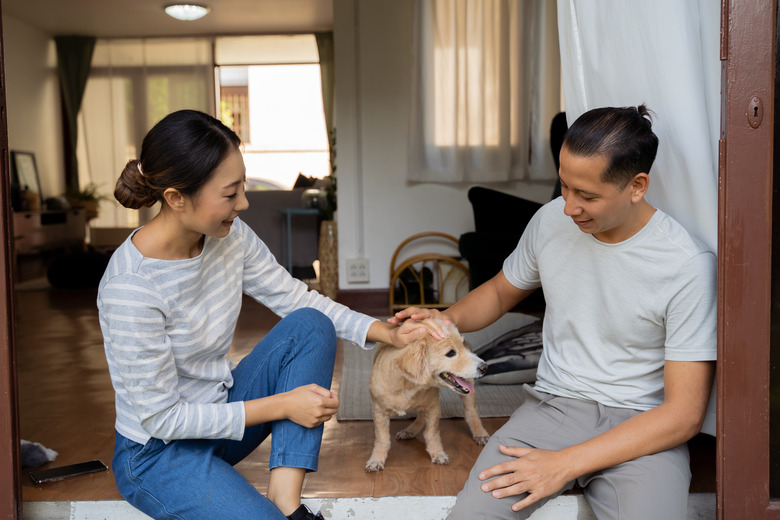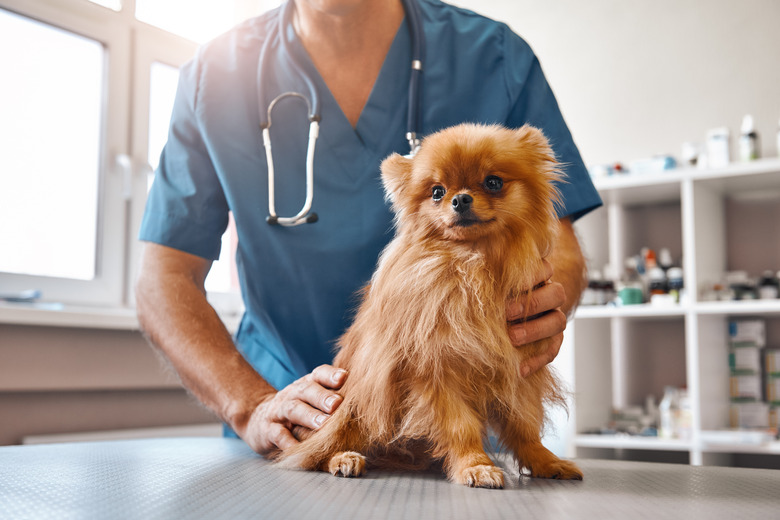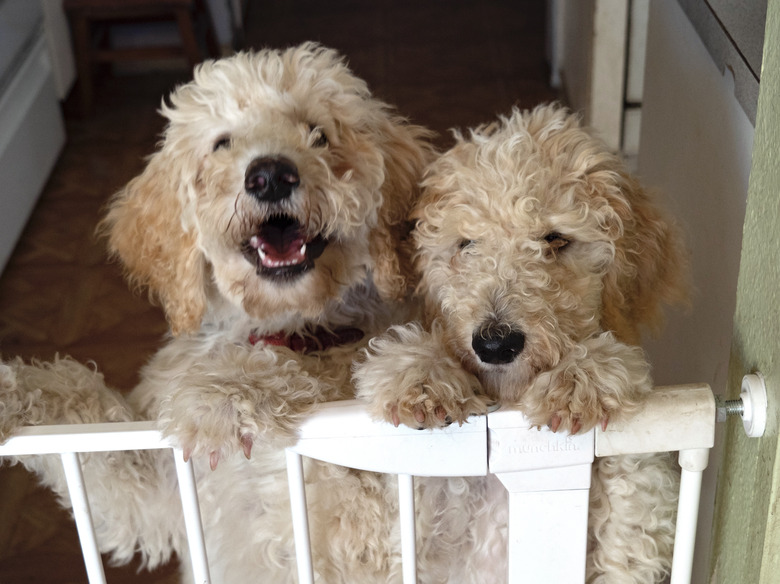Everything You Should Do During Your First Week With Your New Dog
Bringing home a new dog is an exciting and challenging time for any pet parent. Sometimes, dogs can come to a new home scared, timid, smelly or even feeling a little unwell, and those early days in their new spaces should be as welcoming and untaxing as possible.
A good way to ensure that your new relationship is set up for success is to buy all the basics before your dog arrives, including food, bedding, veterinary care and basic management of their environment.
Take care of your dog's health
Take care of your dog's health
One of the very first things recommended for newly adopted dogs is to set up an appointment with a veterinarian, who can offer a basic wellness check, and administer any medication needed. If possible, look for veterinarians in your area who are certified Fear Free, to give your dog the lowest-stress veterinarian experience possible.
Often, adopted dogs come with a set of vaccinations and a microchip, but this isn't always the case, so it's best to ask for any medical records from the adoption organization, then take that info with you to a doctor. Some dogs will come spayed or neutered, while others will not, or may be too young to undergo such a procedure at first. A new puppy will need a series of vaccinations which are administered on a schedule over the course of several months, so be sure to obtain records of which shots were given and when.
Food is another obvious need for your new dog, and often, newly adopted dogs may take a little while to get their stomachs settled if their diets are changed too fast upon going home. To make the transition as smooth as possible, find out what food your dog was eating at the shelter or their foster hone, and continue with that diet to start. If you wish to change the food your dog eats, subtract small amounts of the old food and add in bits of new food until your dog is only eating the new diet.
Make your dog comfortable
Make your dog comfortable
Attending to the physical health of a dog is just one aspect of pet care. Making sure your dog is cared for mentally and emotionally is just as important, especially in those first days of your new relationship.
The first week home, aim to keep your dog's environment as comfortable and low-stress as possible. Starting on day one, make sure your dog has a comfortable, safe space to decompress in, like a new dog bed or a crate equipped with blankets and some fun interactive toys to help keep them occupied. A shy or timid dog will benefit from their personal space being housed in a quiet, low-foot traffic area of the home, at least at first.
Depending where they came from, your new dog may also be in need of a bath or grooming. Because baths can be stressful for some dogs, be sure to ask about your dog's temperament and preferences from your adopter, and see if they have groomer recommendations in your area who may be able to handle sensitive dogs, if need be.
Use management to set your dog up for success
Use management to set your dog up for success
Management, which means changing the environment to prevent or minimize problematic behaviors, is essential to your first week with your new dog. It will help set you both up for success.
Baby gates are a great management tool, especially in the beginning. Use them to prevent your dog from getting into places they shouldn't be, like the kitchen or a young child's room.
There are lots of other ways to use management as well, depending what types of issues you want to prevent. If your dog barks at people they see outside, close the curtains or install privacy film. If your dog steals food out of the trash can, buy a trash can with a lid they can't get into, and so forth.
You'll use management as part of your greater training plan as time goes on.
Hold off on training — just for the first week
Hold off on training — just for the first week
Training is crucial for you and your new dog, but give them a week just to settle into their new home before you begin training in earnest. The dog will likely be confused and at least a little stressed, and that's not an ideal state to learn in. The first week, just focus on spending time with your dog and making them comfortable.
In the following weeks, it's a great idea to work with a qualified dog trainer who uses positive reinforcement techniques to teach your dog some basic cues and new behaviors.
Adult dogs will greatly benefit from structure and routine in their new environment, which can be made easier with the help of a dog trainer or training classes. Building trust and a lifelong bond is best done by using positive reinforcement training, where dogs are rewarded for doing well rather than scolded for doing wrong. Desired behaviors are best enforced with high value treats for a job well done, like delicious treats and loving praise.
In summary
In summary
Having basics prepared for when your new pet first comes home can make the first week comfortable and assured for everyone. Things to have ready include bedding, food, and a veterinary practice for check up. Spend the first week focusing on just keeping your dog comfortable and feeling safe, and save training and more mentally taxing activities for later on.


